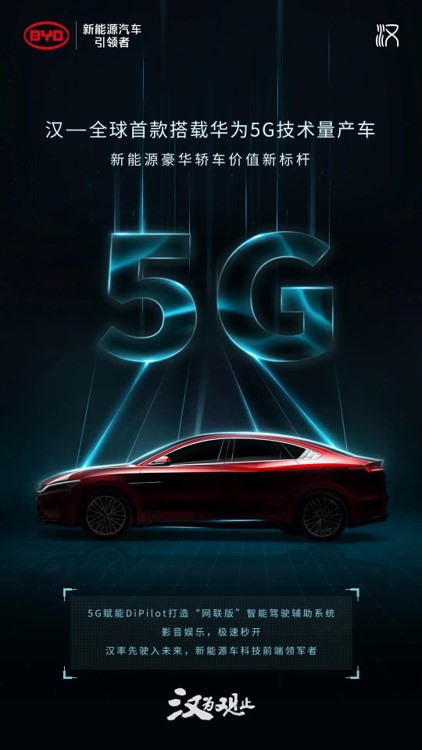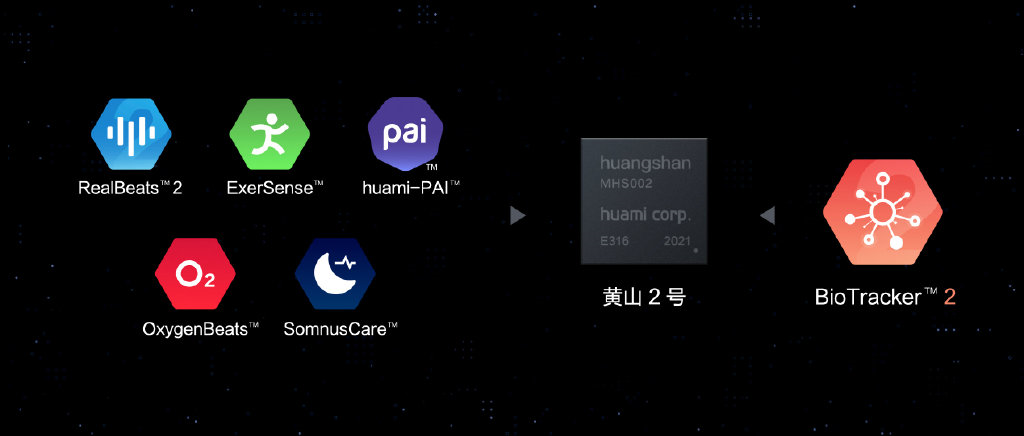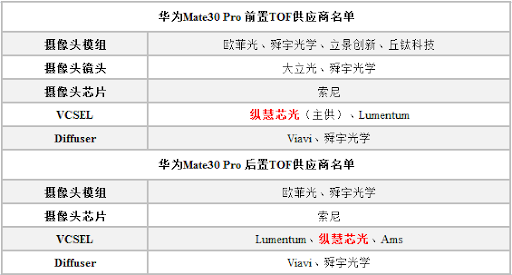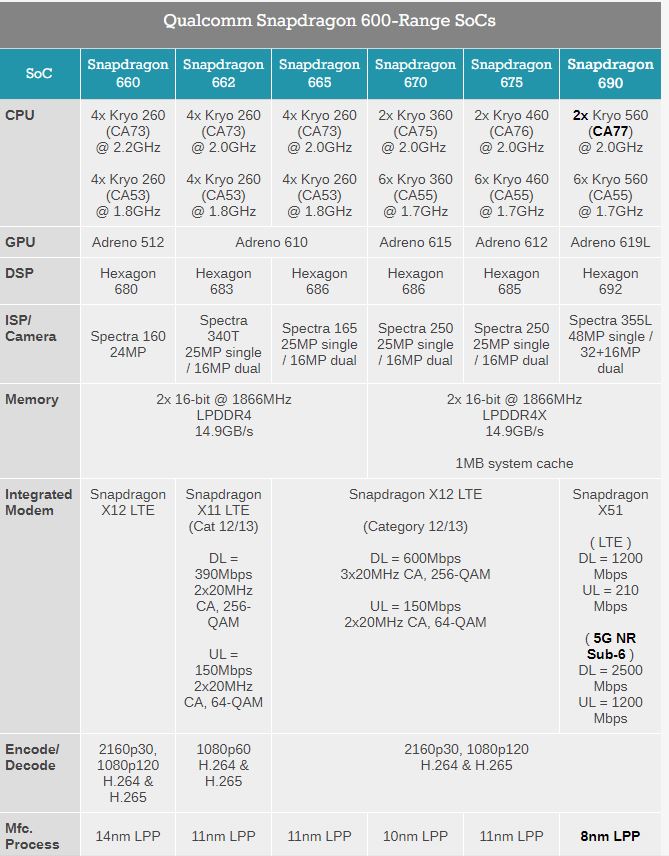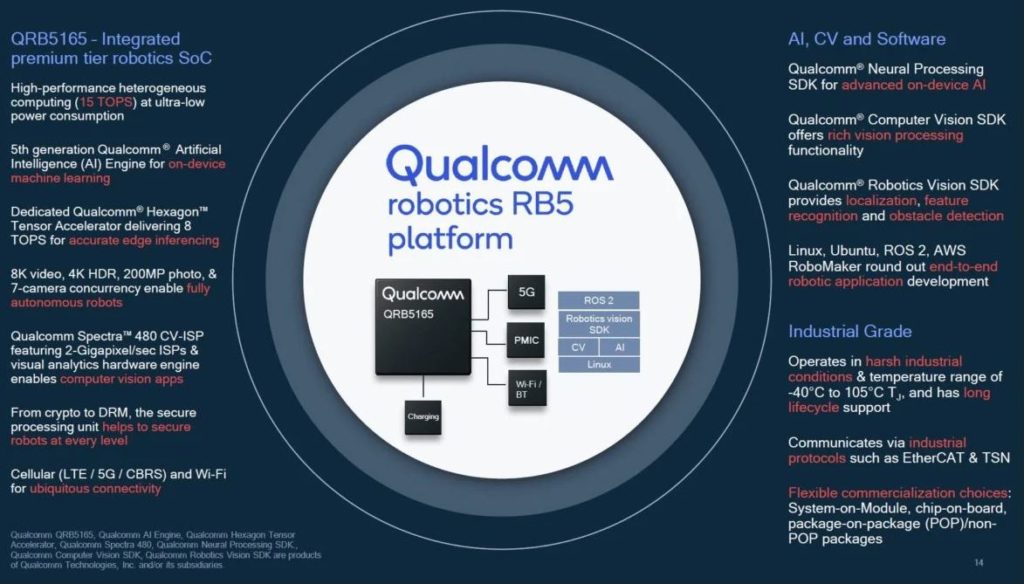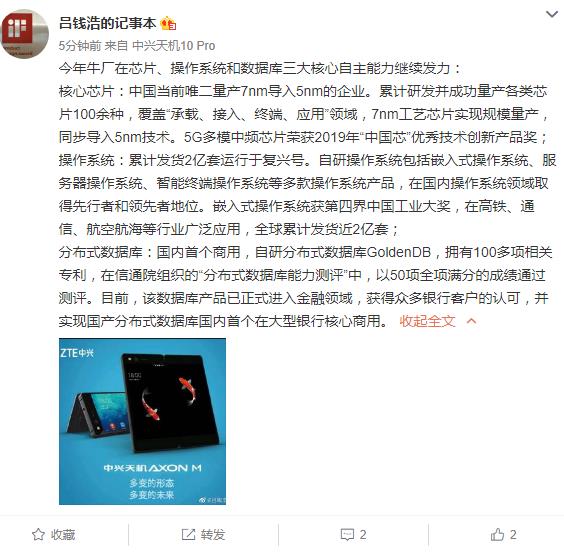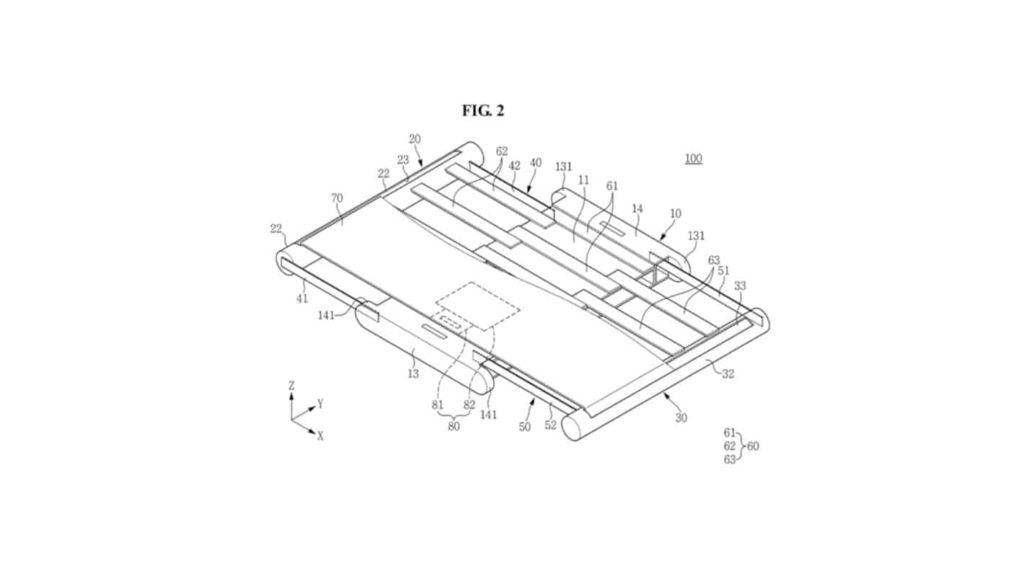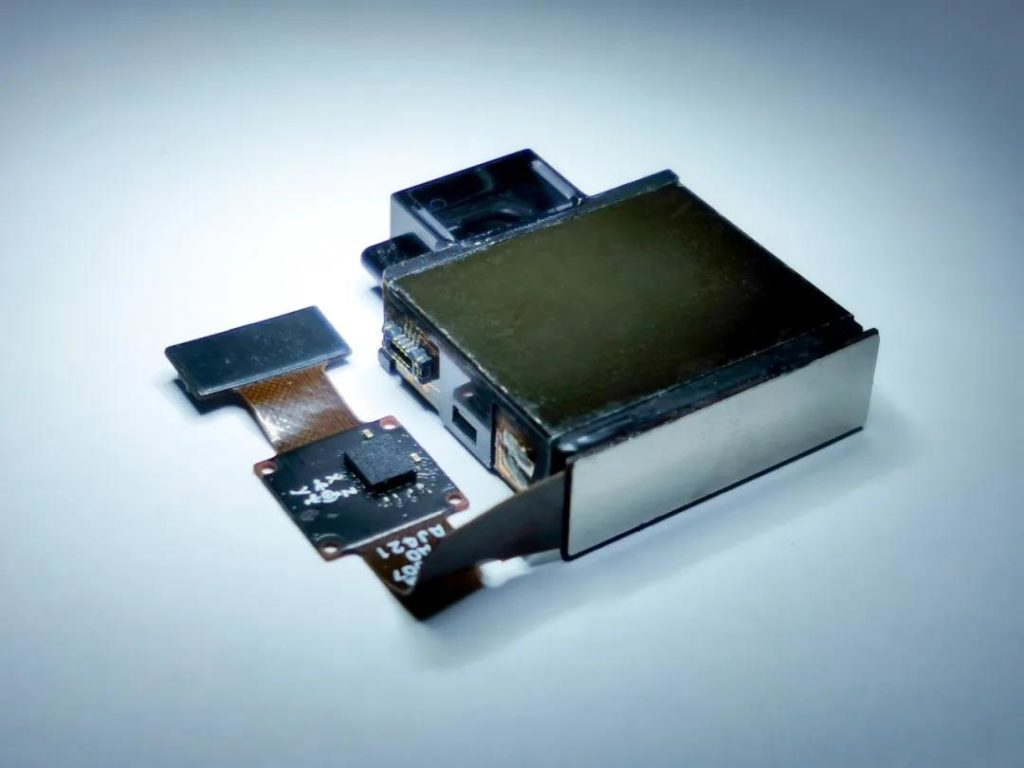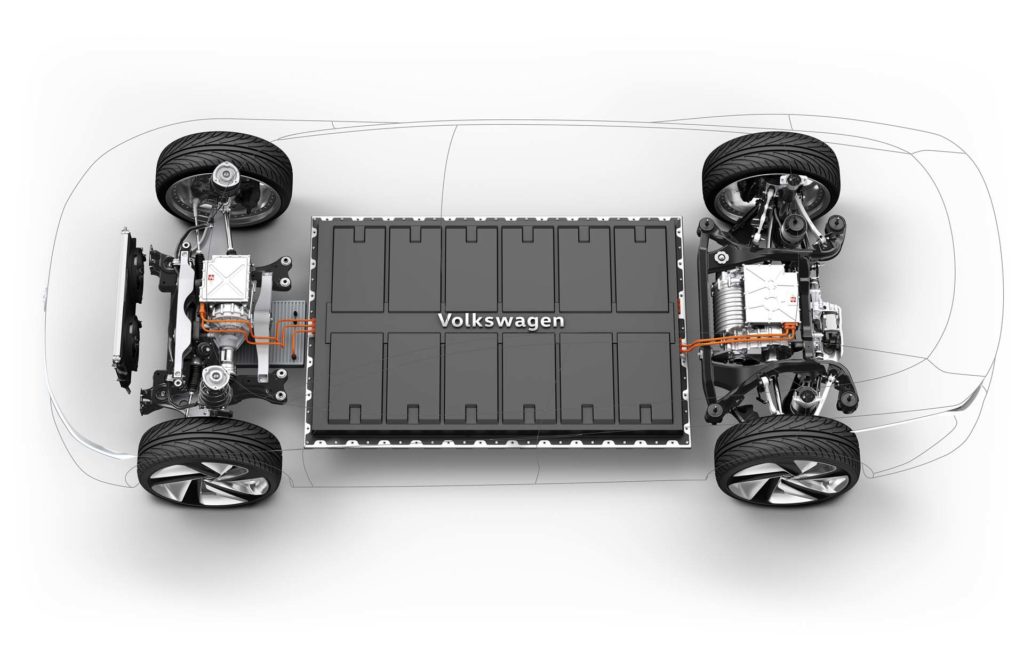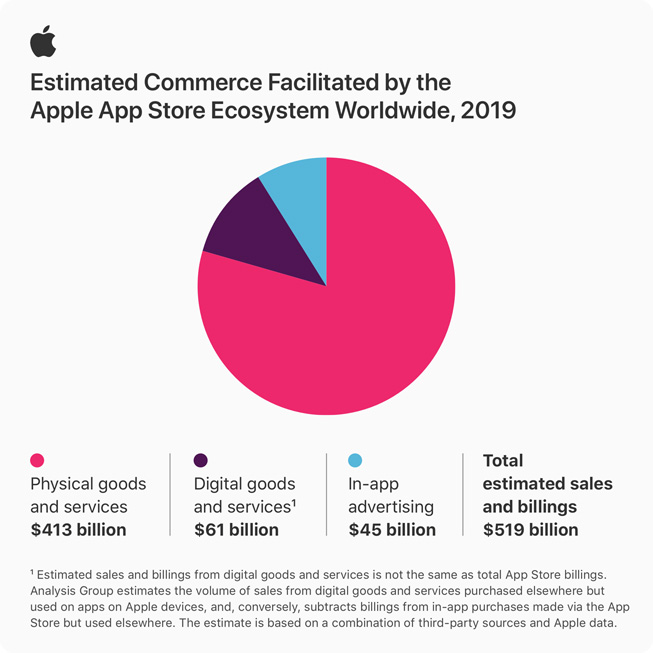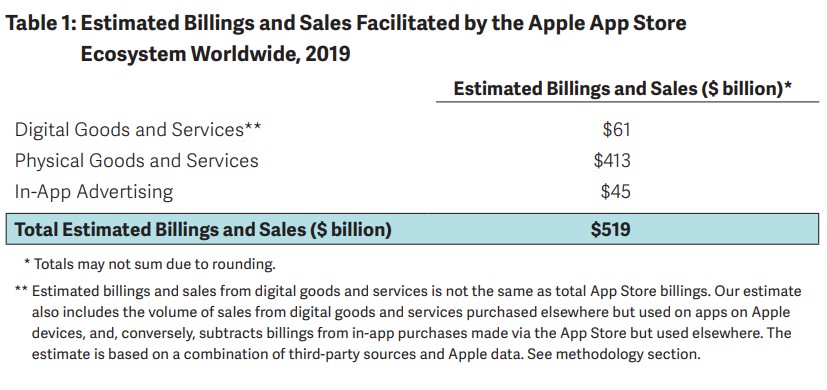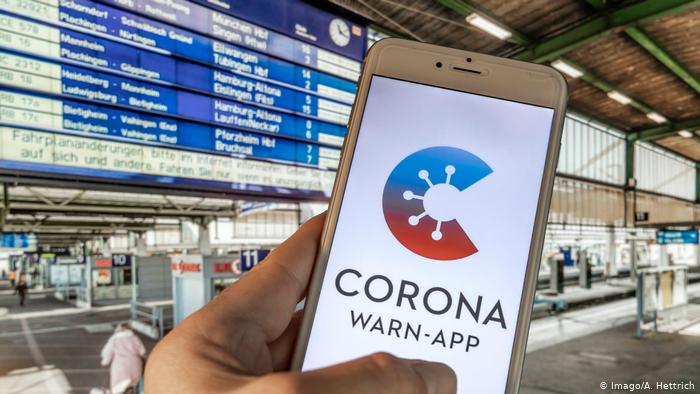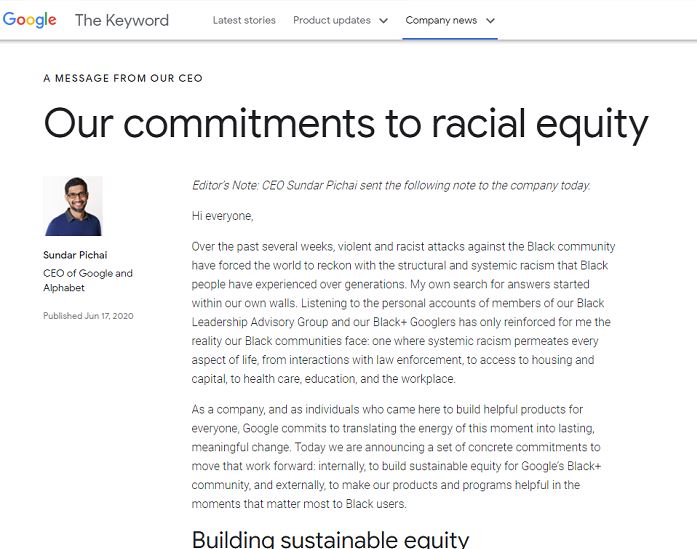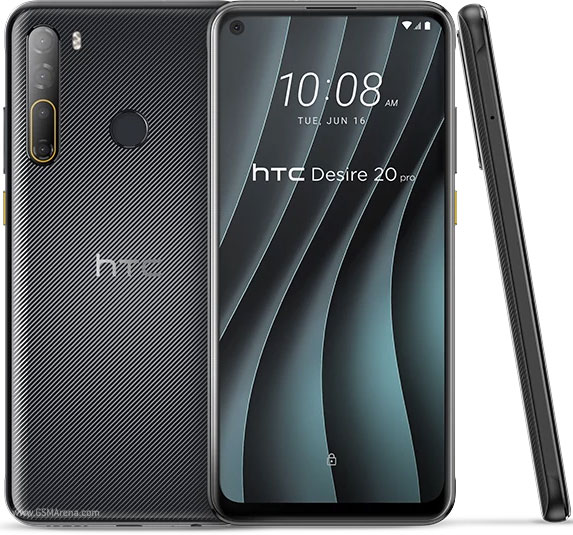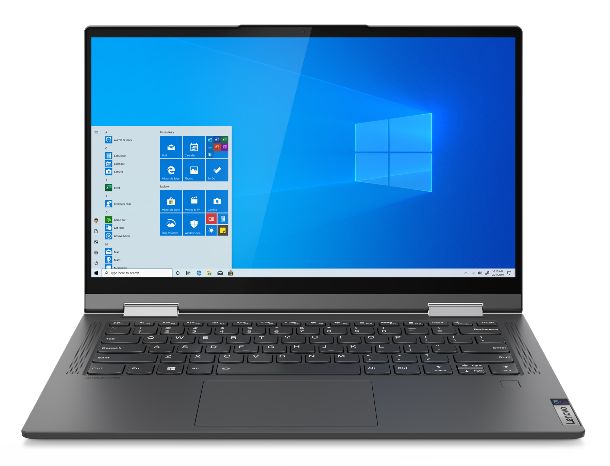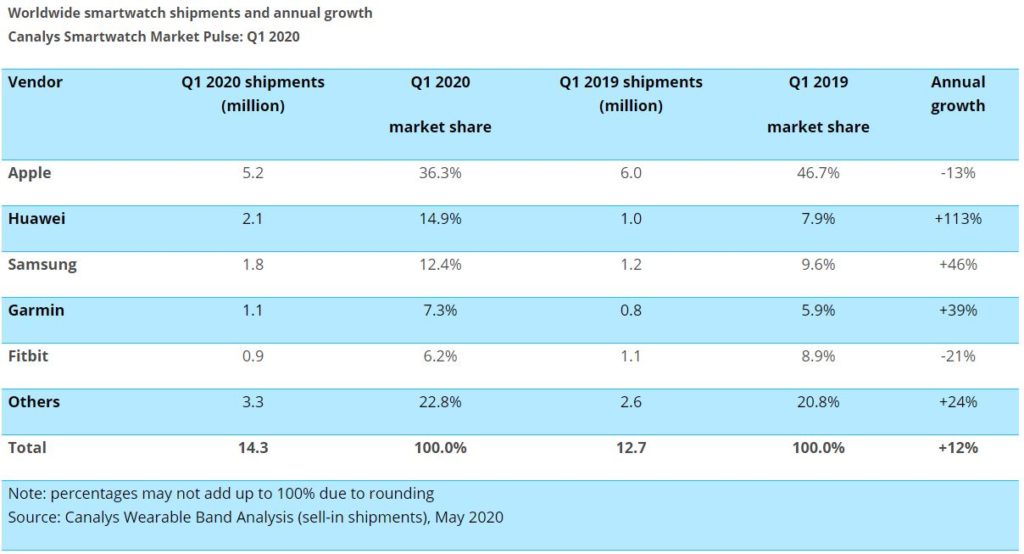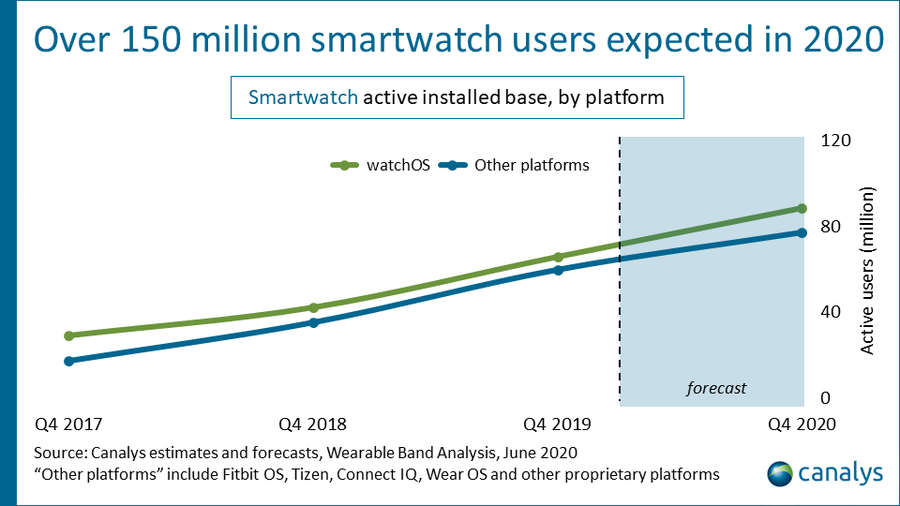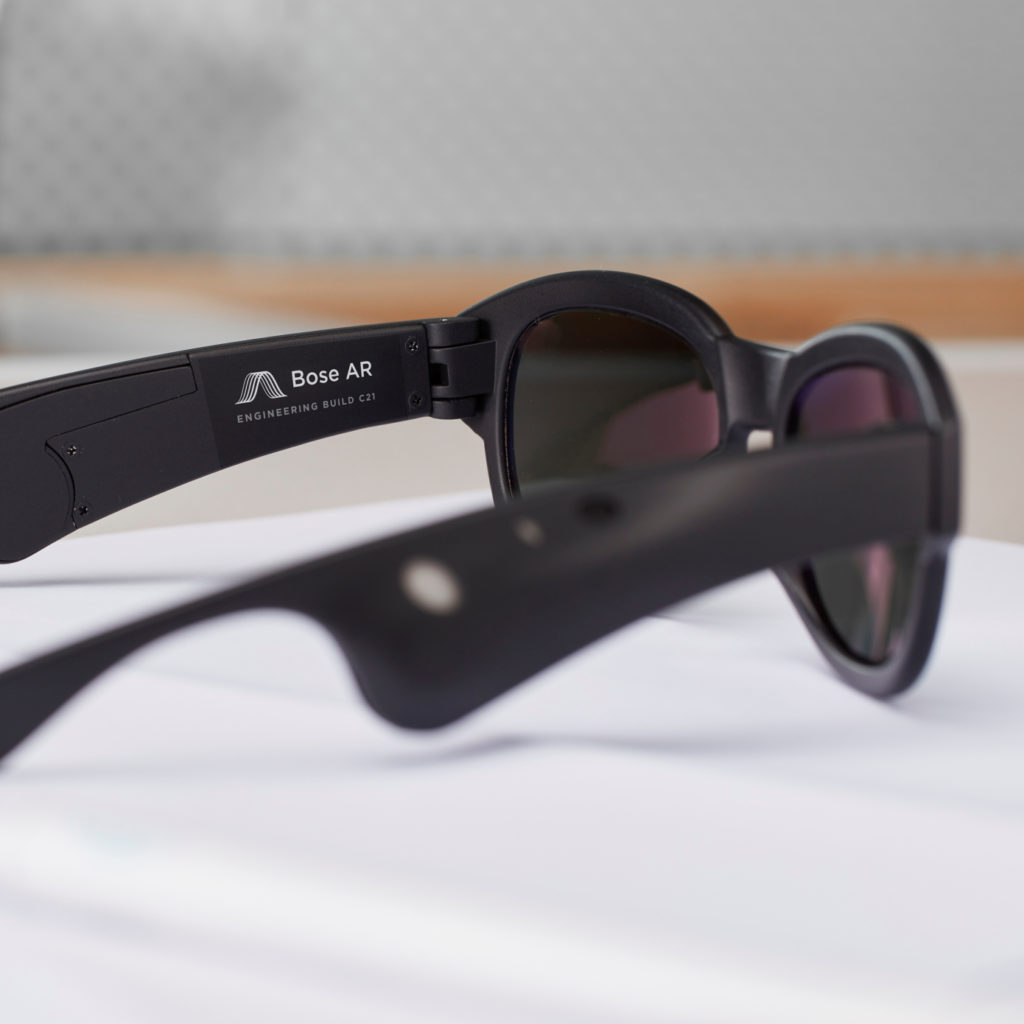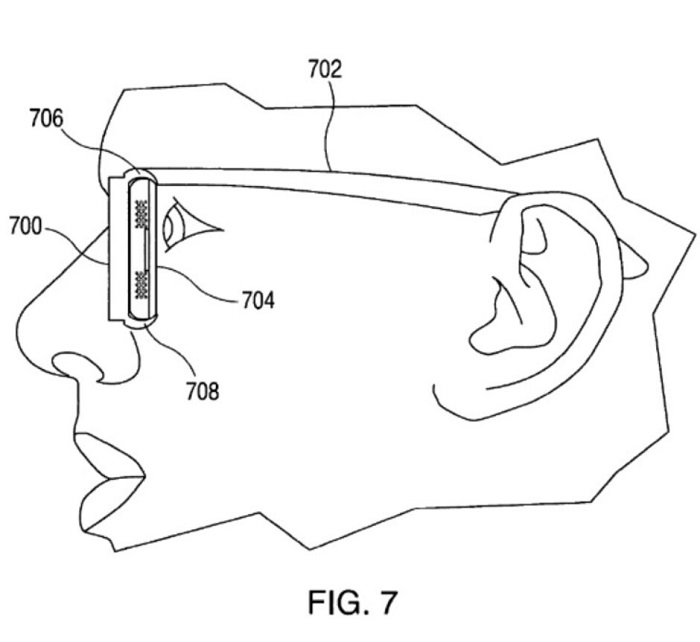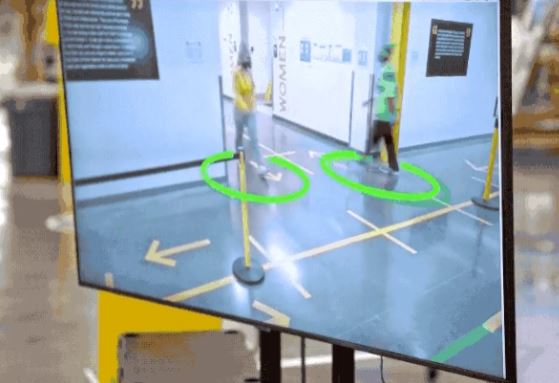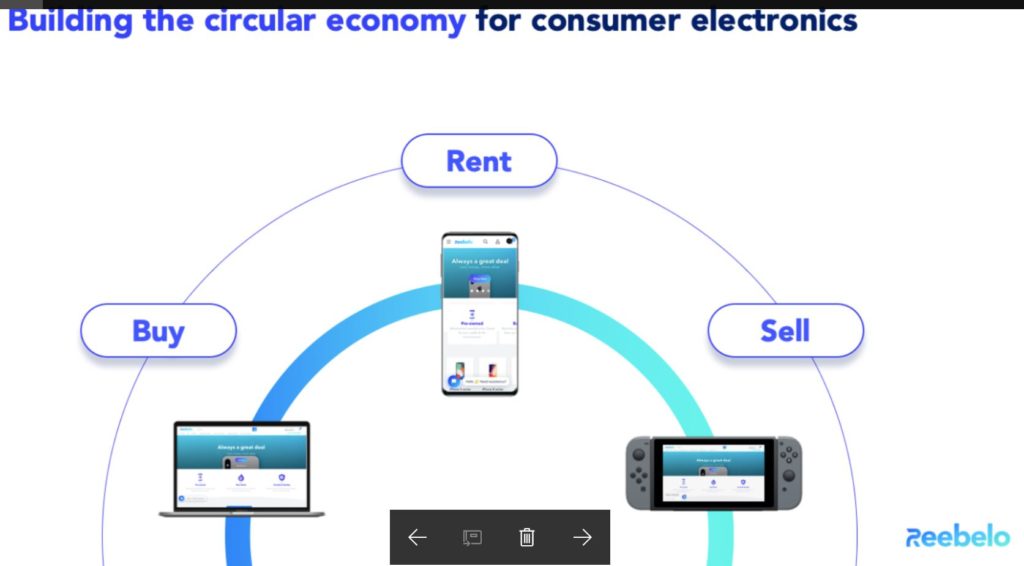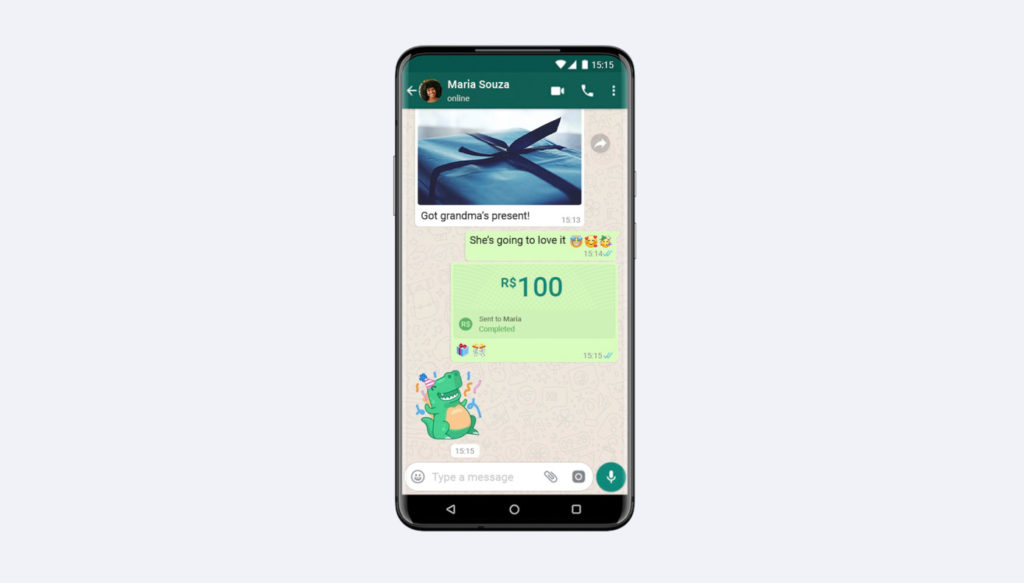
6-18 #TinySurprise: Nokia and Broadcom are collaborating on the development of advanced semiconductor technologies; Qualcomm has announced Snapdragon 690; O-Film has successfully developed the slimmest periscope continuous zoom module; etc.
Huawei is reportedly exploring landing applications for its HiSilicon Kirin chip in the automotive digital cockpit, the first product is the Kirin 710A, which has seen the signing of a partnership agreement with BYD. BYD has announced that its new model – Han will use Huawei’s 5G module MH5000, which is Based on the 5G chip Balong 5000 developed by Huawei. (Laoyaoba, 36Kr, Equal Ocean, Tech Post)
Huami Technology has unveiled its second generation of its self developed Huangshan processor, dubbed Huangshan 2 SoC. It features a new architecture, which was developed based on the RISC-V instruction set. The SoC is expected to be mass produced by 4Q20 and should be seen in the market by 2021. (Gizmo China, GizChina, CN Beta)
TSMC plans to build a chip production plant in Arizona, USA, using a 5nm process to manufacture chips for related customers. From 2021 to 2019, TSMC plans to invest USD12B in this plant, which is likely to be named the 20 Fab. Liu Deyin, chairman of TSMC, has indicated that it is not conclusive to build a factory in the United States. Though the site has been selected, there are still issues in related to cost. The subsidy of the US government is the key, and it is currently waiting for the US Congress to pass the relevant bill. (CN Beta, China Times, UDN, Sohu, CTEE, China Times, Reuters)
Huawei subsidiary, Hubble, has invested in a semiconductor startup named Vertilite. Hubble is an investment based company while the startup specializes in developing VCSEL chips (vertical-cavity surface-emitting laser). Vertilite specializes in developing high powered and high speed VSCEL chips within the range of 650nm to 1000nm. Previously, Hubble had also invested two local semiconductor companies in China. (Gizmo China, Chain News, IT Home)
Nokia and Broadcom have announced that they are collaborating on the development of advanced semiconductor technologies, including new custom system-on-chip (SoC) processors, which will be integrated into Nokia’s “5G Powered by ReefShark” portfolio. The collaboration further expands the range of Nokia ReefShark chipsets available for 5G solutions and will improve both the system performance and energy footprint of 5G networks. (CN Beta, Fierce Wireless, Nokia)
Qualcomm is extending its 5G SoC portfolio down to the Snapdragon 600-series, introducing Snapdragon 690 platform. The new platform includes the newest Cortex-A77 IP for the big CPU cores, resulting in a 20% performance uplift thanks to the microarchitectural improvements. (Android Authority, AnandTech, Qualcomm)
Qualcomm is announcing an update to its robotics platform, upgrading the aging RB3 with a Snapdragon 845-based SoC with the new RB5 platform which is based on a newer Snapdragon 865 chipset. Qualcomm is aiming for gaining market share in the fast-growing industry that’s projected to reach USD170B by 2025. (AnandTech, Qualcomm)
ZTE has stated that it has achieved chip design and development capabilities. It already has the 7nm processors being mass produced, and being utilized in global 5G infrastructures, while it has also begun importing 5nm process technology as well. According to the company’s VP Xie Junshi, ZTE has spent over CNY12.1B (roughly USD1.7B) in the past 3 years on R&D. (CN Beta, My Drivers, Gizmo China)
Mitsubishi Electric has announced that it will end the production of TFT-LCD modules manufactured by its wholly owned subsidiary Melco Display Technology Inc. (MDTI), aiming at Jun 2022. The production termination is due to the changes of business environment. (CN Beta, Mitsubishi Electric, Market Watch)
Samsung Electronics should get tax and other incentives from India’s northern state of Uttar Pradesh as the company looks to invest some INR53.67B (USD705.75M) in a smartphone display manufacturing plant in the state. The facility is likely to begin operations in 2021. Samsung Display currently has 3 OLED plants in China, 9 plants in South Korea, and 1 plant in Vietnam. (Gizmo China, Reuters, India Times)
Samsung has patented a new rollable display design that appears to be meant for a mobile device. Part of the panel is wrapped around a roller that is hidden on the inside of the device. When extended, all of that display is essentially off the roller, allowing a user to interact with the device in a bigger format. (Android Headlines, USPTO)
Samsung’s patent has revealed a new device that features a whopping 6 cameras on the rear, including a periscopic lens. The main aspect regarding this camera module is its tilting mechanism for its sensors. In the normal mode, these cameras face the regular forward direction, but in the “active mode”, they can tilt towards the horizontally or vertically. This enables the sensors to achieve a wider focal length overall. (Gizmo China, LetsGoDigital, Sohu, Sina)
O-Film has officially announced that the company has successfully developed the slimmest periscope continuous zoom module, with a size exceeding 6mm and a thickness of only 5.9mm. While the module is ultra-thin, the lens of this module is composed of 3 groups of “1GMO6P” lenses, the equivalent focal length reaches 85~170 mm, and the aperture is 3.1~5.1. (CN Beta, Sparrow News)
Volkswagen has invested another USD200M into QuantumScape, a Stanford University spinout developing solid-state batteries as the automaker bets on a next-generation technology that will unlock longer ranges and faster charging times in electric vehicles. The two companies formed a joint venture in 2018 to accelerate the development of solid-state battery technology and then produce them at commercial scale. (TechCrunch, Volkswagen, Reuters, Auto Home)
Nokia has announced that it has struck a new deal with China Unicom. Under the deal, Nokia will provide 10% of China Unicom’s 5G core network. The core network is responsible for setting up connections, bandwidth management, scaling and securing the network, and opening up the network to support software-enabled features such as network slicing. (CN Beta, Neowin, Nokia)
The Swedish firm Sinch has agreed to buy Indian firm ACL Mobile for GBP56M (roughly USD70M). The company has said acquiring ACL Mobile will enable it to leverage the Indian firm’s connections with local mobile operators in India, as well as in Malaysia and UAE, to expand its end-to-end connectivity without working with a third-party firm. (TechCrunch, Globe Newswire, NDTV)
Apple has announced the App Store ecosystem supported USD519B in billings and sales globally in 2019 alone. The new study, conducted by independent economists at Analysis Group, found that the highest value categories were mobile commerce (m-commerce) apps, digital goods and services apps, and in-app advertising. (CN Beta, Apple, report, CNBC)
Germany has become the latest country to launch a coronavirus contact tracing app. The government has begun asking the public to download the new app so that authorities have a better chance of stemming the rate of infection. The new ‘Corona-Warn-App’ is available for Android and Apple devices and is built using the decentralized method that leverages the Apple-Google Bluetooth API. (Neowin, Reuters, DW, Xinhuanet)
Google CEO Sundar Pichai has said the company will commit USD175M toward supporting black businesses. The company has also said it plans to increase “underrepresented” people in its leadership by 30% by the year 2025. (CN Beta, Google, CNBC)
HTC U20 5G is announced – 6.8” 1080×2400 FHD+ IPS HiD, Qualcomm Snapdragon 765G, rear quad 48MP-8MP ultrawide-2MP macro-2MP depth + front 32MP, 8+256GB, Android 10.0, rear fingerprint scanner, 5000mAh 18W, price yet unknown. (CN Beta, GSM Arena)
HTC Desire 20 Pro is announced – 6.5” 1080×2340 FHD+ IPS HiD, Qualcomm Snapdragon 665, rear quad 48MP-8MP ultrawide-2MP macro-2MP depth + front 25MP, 6+128GB, Android 10.0, rear fingerprint scanner, 5000mAh 15W, price yet unknown. (GSM Arena, HTC)
Lenovo Flex 5G laptop is launched in Verizon US – 14” 1920×1080 touch display, Qualcomm Snapdragon 8cx 5G, front 720p camera, 8GB LPDDR4X, 256 / 512GB UFS 3.0, Windows 10, IR camera (face recognition) / fingerprint reader, 60Wh battery, 45W USB-C, USD1,399. (Liliputing, GizChina, XDA-Developers)
Huang Wang, CEO of Huami Technology has announced that the establishment of an AI research institute. The Institute has established 3 joint laboratories, namely the wrist smart wearable joint laboratory with the academician Zhong Nanshan team, the track and field joint laboratory of the Chinese Athletic Association, and the brain-computer intelligence of the Advanced Technology Research Institute of the Chinese University of Science and Technology United Lab. (CN Beta, Global Times)
Worldwide smartwatch shipments reached 14.3M units in 1Q20, up 12% YoY, despite COVID-19. Though Apple’s shipments fell 13%, its smartwatch platform remains the world’s largest and is growing steadily. WatchOS gained 4M new active users during the quarter, bringing the total installed base to an estimated 70M. In 2Q20, lifetime Apple Watch shipments will reach 100M units. (GSM Arena, GizChina, Canalys, press)
Bose is halting their Bose AR platform, noting that the company would no longer be working on third-party developer apps and would halt support for them in mid-Jul 2020. (TechCrunch, Protocol, VR Tuoluo, Sohu)
Apple’s patent titled “Head-mounted display apparatus for retaining a portable electronic device with display” suggests a system that could perform a similar task in a rumored product like “Apple Glass”. The device consists of a glasses frame that an iPhone could slide into and connect with internal connectors, one that positions the iPhone directly in front of the user’s eyes. (CN Beta, Apple Insider, Phone Arena)
The United Kingdom’s National Health Service (NHS) has invited VR training company Virti to join its innovation accelerator program, commissioning a study to quantify VR’s value in educating hospitals’ frontline workers. Virti has released early results from the study, spotlighting the strong use case COVID-19 created for VR medical training, and hinting at its potential for broader adoption across other enterprises. (VentureBeat, VR Explore, 93913)
Google is reportedly going to launch a new Nest-branded smart speaker in the near future. The new Google Assistant speaker is codenamed ‘Prince’ and it will apparently be a standard smart speaker to sit alongside the Nest Mini, Nest hub and Google Home Max. (Pocket-Lint, 9to5Google, CN Beta)
Amazon has unveiled a new AI tool it says will help employees follow social distancing rules. The company’s “Distance Assistant” combines a TV screen, depth sensors, and AI-enabled camera to track employees’ movements and give them feedback in real time. When workers come closer than six feet to one another, circles around their feet flash red on the TV, indicating to employees that they should move to a safe distance apart. (The Verge, Amazon, Tencent, ChinaZ)
Walmart has announced a new partnership with e-commerce shopping platform, Shopify, now used by over 1M businesses. The deal will open Walmart’s Marketplace to Shopify’s small business sellers, with the goal of bringing 1,200 Shopify sellers to the marketplace in 2020. The partnership will greatly expand the reach of the participating brands by placing them in front of Walmart Marketplace’s 120M monthly visitors. (TechCrunch, Walmart, BizLeader, Sina)
Reebelo, a Singapore-based marketplace for refurbished electronics, announced it has raised a seed round of USD1.25M led by June Fund. The new funding will be used for hiring, especially marketing and operations positions for customer service as the company scales. (TechCrunch, Tech in Asia)
Facebook’s WhatsApp is bringing digital payments to WhatsApp users in Brazil. People will be able to send money securely or make a purchase from a local business without leaving their chat. The over 10M small and micro businesses are the heartbeat of Brazil’s communities. (TechCrunch, Whatsapp)
Financial startup Tonik Financial has raised USD21M in a new financing round to launch its digital bank aimed at the Southeast Asian market by Sept 2020. Tonik, which has recently received the license to operate a digital bank in the Philippines, has said it will commercially launch the digital bank in 3Q20. (TechCrunch, Business News Asia, Asia Tech Daily)

